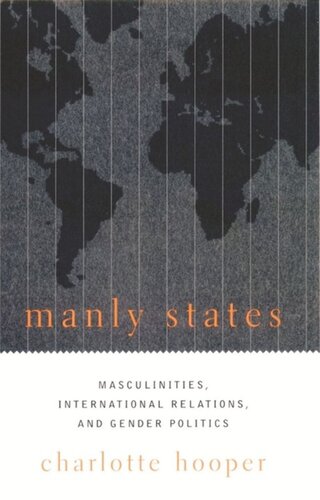

Most ebook files are in PDF format, so you can easily read them using various software such as Foxit Reader or directly on the Google Chrome browser.
Some ebook files are released by publishers in other formats such as .awz, .mobi, .epub, .fb2, etc. You may need to install specific software to read these formats on mobile/PC, such as Calibre.
Please read the tutorial at this link: https://ebookbell.com/faq
We offer FREE conversion to the popular formats you request; however, this may take some time. Therefore, right after payment, please email us, and we will try to provide the service as quickly as possible.
For some exceptional file formats or broken links (if any), please refrain from opening any disputes. Instead, email us first, and we will try to assist within a maximum of 6 hours.
EbookBell Team

0.0
0 reviewsMuch has been written on how masculinity shapes international relations, but little feminist scholarship has focused on how international relations shape masculinity. Charlotte Hooper draws from feminist theory to provide an account of the relationship between masculinity and power. She explores how the theory and practice of international relations produces and sustains masculine identities and masculine rivalries.
This volume asserts that international politics shapes multiple masculinities rather than one static masculinity, positing an interplay between a "hegemonic masculinity" (associated with elite, western male power) and other subordinated, feminized masculinities (typically associated with poor men, nonwestern men, men of color, and/or gay men). Employing feminist analyses to confront gender-biased stereotyping in various fields of international political theory—including academic scholarship, journals, and popular literature like The Economist—Hooper reconstructs the nexus of international relations and gender politics during this age of globalization.